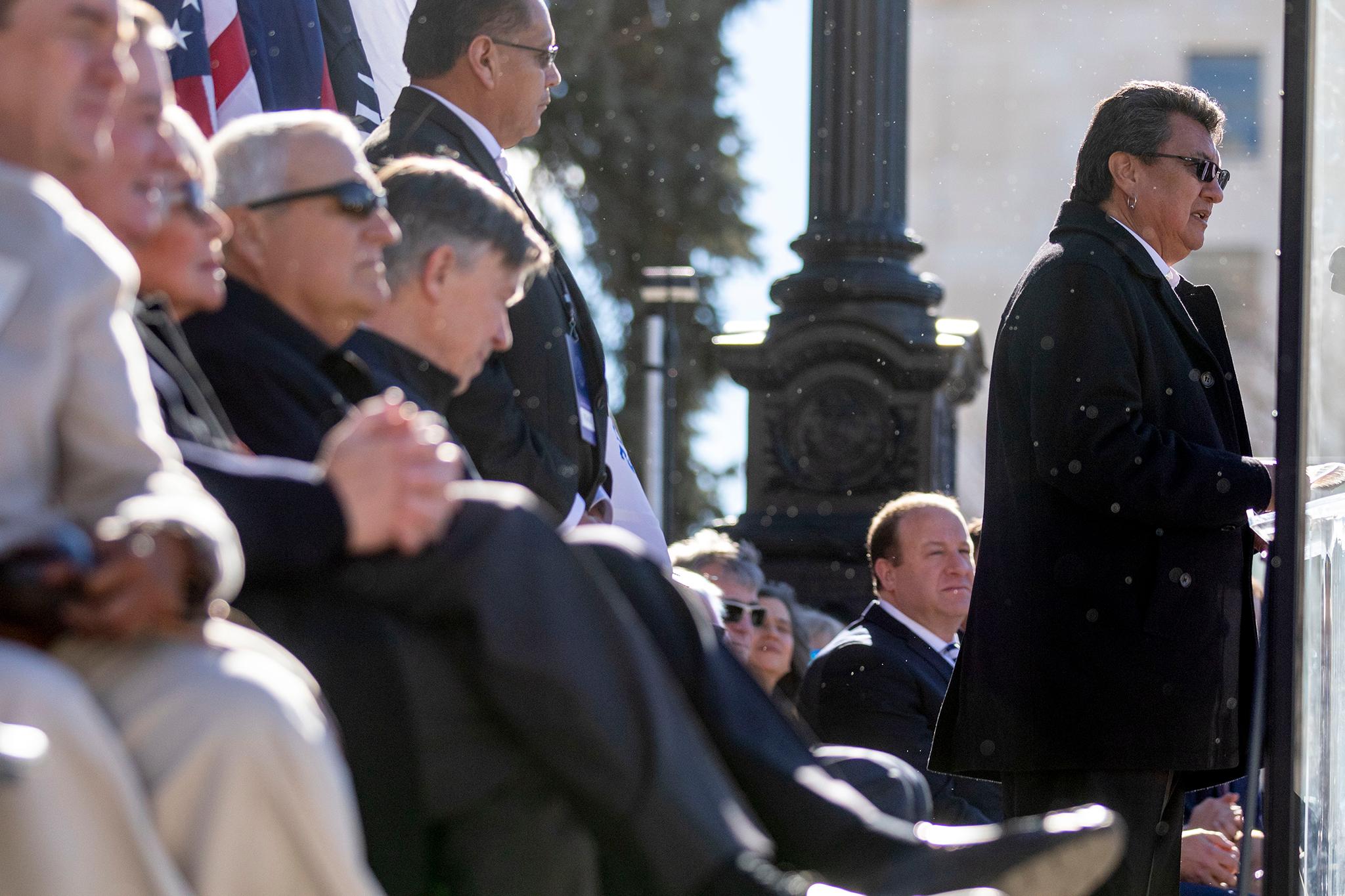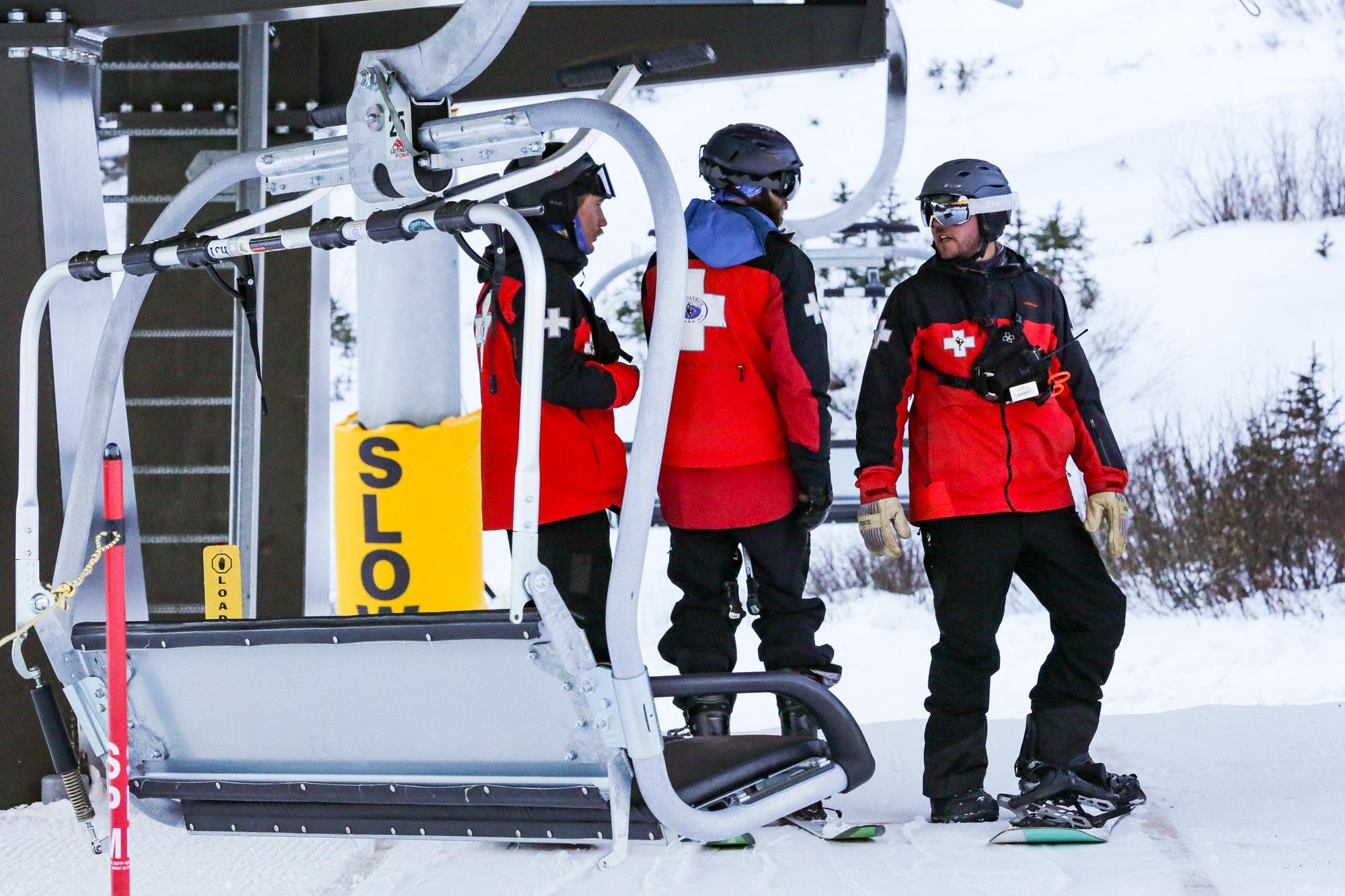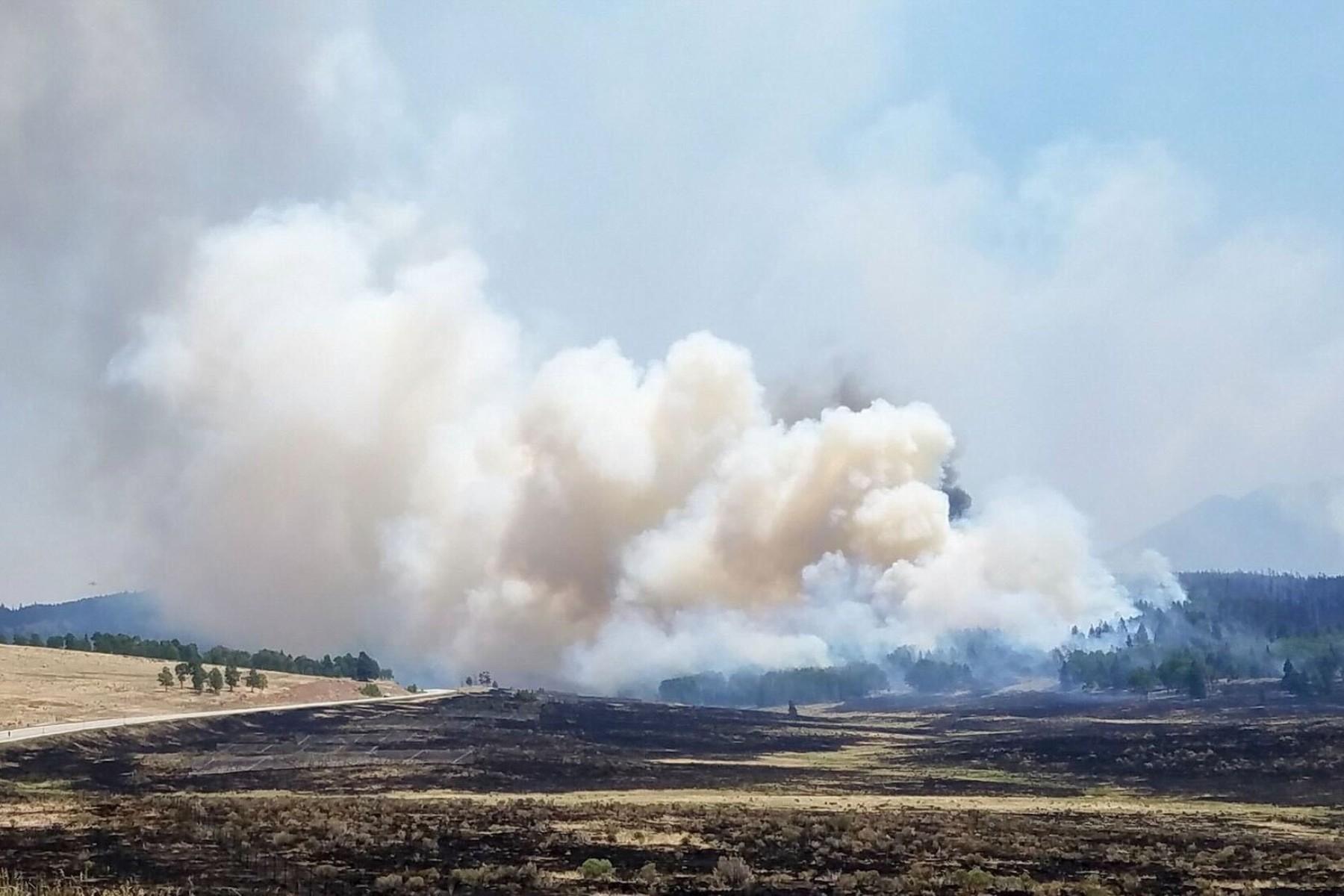
The chairmen of the Ute Mountain Ute and the Southern Ute tribes spoke in a joint address to the state legislature on Wednesday.
It was the first time, under a new state law, that the tribal leaders were invited to address state lawmakers.
Over the course of about 30 minutes, the two leaders shared the history of their communities and asked for lawmakers' help on specific issues. Here are a few.
Water
Manuel Heart, chairman of the Ute Mountain Ute, said the tribe needs help to access the water for which it already holds rights.
“Currently, we have no delivery system to get our water to put it to use,” he said. “The United States has not secured funding for a delivery system for our tribal water.”
Heart said the state should partner with the tribe to work on a pipeline from Lake Nighthorse to Montezuma County.
The tribes also deserve a greater role in water planning among the Colorado River basin states, he said.
“Most tribes still do not sit at the table as decision-makers on tribal water rights,” he said. “They are consulted but don’t have a vote on the management plan.”
Sports betting
The two tribes have been excluded from the state’s booming sports betting industry, said both Heart and Melvin J. Baker, chairman of the Southern Ute, in their speeches.
“Even though the tribes each operate a casino, there was no consultation with the tribes during the passage of that legislation,” Baker said. Sports betting was legalized by a 2019 ballot initiative, Prop. DD. State lawmakers drafted the language for the law.
The two tribes’ casinos already offer sports betting in some forms, including online betting through the Southern Ute casino’s sportsbook.
However, neither of the tribes’ sportsbooks are licensed through the state of Colorado, and sports betting isn’t addressed in the tribes’ gaming compacts with the state. The chairmen said that they’re unable to meet the requirements of the current state law.
As Baker pointed out, federal law requires casino revenues to be used for the benefit of tribal members. Under compacts with the state, the tribal casinos are not subject to state taxation.
But the state betting law levies a 10 percent tax on casinos’ house winnings and puts the money toward the state water plan. That’s contradictory to the current arrangement and the sovereignty of the tribes, Heart said.
“We should not be regulated as a business entity in the state of Colorado,” he said. A spokesperson for the state Department of Revenue didn’t immediately respond to a request for comment.
Education
The first charter school on Ute Mountain Ute lands recently opened. The tribe hopes to implement a full K-12 charter school and perhaps a vocational school and junior college, Heart said.
But, “that takes future capital funds, which we currently don’t have.”
The history of indigenous people also should be incorporated into educational curricula statewide, Heart said. The chairman reminded lawmakers of the “devastating impact” of boarding schools on three or more generations of tribal members.
“Now is the time to ensure that the oldest continuous residents of this country, their history be required into the curriculum and the (public education) system. No disrespect to anyone, but looking back at the true history, at whose cost of life and liberty and our … tribal rights to live as a free sovereign nation,” he said.
Other requests
Heart raised several additional concerns, including the reduction of tribal hunting lands. He proposed that the tribe’s hunting area be expanded into the Uncompahgre National Forest, saying acreage has been taken away by the development of cities and private lands.
He also asked lawmakers to ensure that tribal ID cards are universally accepted for cashing checks and in other situations.
Both Heart and Baker praised state lawmakers, with Baker saying that Colorado “is the leader among all states when it comes to honoring the tribal-state relationship.”
The two men urged cooperation into the future.
“We as the Ute people have lost a lot over time,” Heart said. “We all claim these lands as our homeland, but let us look at the past system and what has been taken — all those lost opportunities, we shall address, and we shall address them today.”









